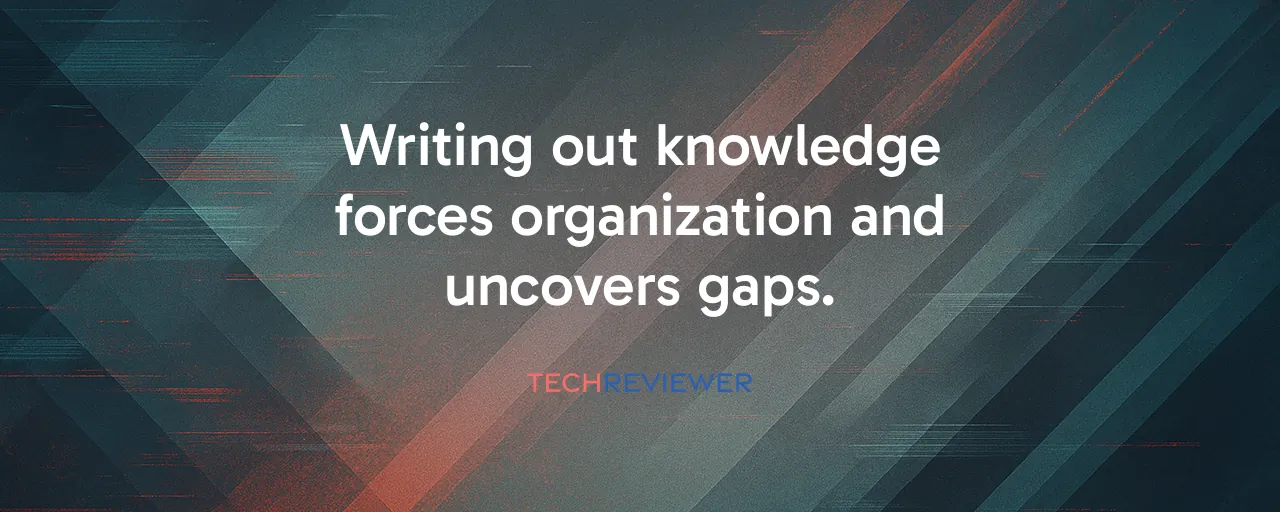Rewriting Knowledge for Mastery
Ever tried scribbling everything you know about a topic on a single page, only to realize you're piecing together connections you didn't see before? That's the magic Andrej Karpathy, a Stanford PhD and OpenAI co-founder, tapped into with his study guide from 2013. His advice, recently rediscovered in tech circles on Hacker News in October 2025, boils down to a simple truth: writing out what you've learned forces your brain to organize and retain it. It's like debugging code; you spot the gaps when you run the program.
Karpathy's approach draws from cognitive science, specifically active recall, where you pull information from memory instead of just rereading notes. Studies show this method can double or triple long-term retention compared to passive review. For computer science students grinding through algorithms or math majors tackling proofs, this means closing the textbook and writing out solutions from scratch. It's tough, feels like a slog, but that struggle cements knowledge. Some students who followed this method for Stanford's CS231n course have condensed extensive material into concise summaries, leading to strong academic performance.
From Cheat Sheets to Deep Understanding
Creating a cheat sheet, even if exams ban them, transforms how you learn. Karpathy's guide suggests distilling an entire course onto a few pages, forcing you to prioritize and connect ideas. A computer science undergrad summarizing data structures, algorithms, and complexity theory into a single, tightly packed sheet reveals what they truly grasp and what's still fuzzy. Cognitive research backs this up: synthesizing information strengthens neural pathways, making recall second nature.
Take Jane, a hypothetical student inspired by Karpathy's methods. She spent hours crafting a cheat sheet for her machine learning midterm, boiling down lectures, code labs, and readings. The act of summarizing clarified how gradient descent tied to loss functions, something she'd glossed over in notes. In this hypothetical scenario, such preparation could lead to strong exam performance and practical applications in research or internships.
Balancing Exams With Real-World Skills
Karpathy's guide doesn't just aim for good grades; it pushes students to build skills that matter beyond the classroom. He argues for targeting around 85 percent on exams, enough for a solid GPA, while spending time on research or open-source projects. This balance reflects tech industry priorities, where hiring managers at companies like Google or Tesla value GitHub portfolios over transcripts. Recent hiring trends suggest that many tech recruiters prioritize project experience over grades.
Consider Karpathy's own path. While acing Stanford courses, he built CS231n, a convolutional neural networks class that grew from 150 to 750 students by 2017. His open-source course materials, still used today, show how teaching others deepens your own understanding. Students who follow this advice often find side projects lead to recommendation letters or job offers. One CS student's open-source contribution to a Python library caught a recruiter's eye, outweighing her 3.8 GPA.
Navigating the Challenges of Smarter Studying
Adopting these methods isn't easy. Active recall feels harder than rereading, and crafting cheat sheets eats up time. Students juggling jobs or dense schedules, like those from under-resourced backgrounds, may struggle to carve out hours for research projects. Karpathy's tip to visit office hours for exam hints also raises equity concerns, confident students may gain an edge over shy peers or those without access to professors in large lectures.
Then there's the tension between cramming and long-term learning. Cognitive science shows spaced repetition, reviewing material over time, outperforms last-minute study sessions. Yet Karpathy acknowledges intense pre-exam review can boost short-term performance. Striking this balance requires planning, something many students only master after trial and error. Research shows that a majority of university students still rely on ineffective rereading, highlighting the challenge of shifting habits.
Why These Strategies Endure
Karpathy's advice, rooted in his Stanford days and now amplified through his Eureka Labs work founded in July 2024, remains relevant because it aligns with how our brains work. Teaching others, as he did with CS231n and his Zero to Hero YouTube series, reinforces your own knowledge. Building projects, like his contributions to Tesla's Autopilot, mirrors the hands-on learning tech employers value. These methods don't just help pass exams, they prepare students for careers where problem-solving trumps rote memorization.
The broader impact is clear. As AI tools like Eureka Labs' teaching assistants scale personalized learning, students everywhere can adopt these strategies. A computer science undergrad who used spaced repetition and project-based learning aced her algorithms course and went on to build a neural network model that impressed a startup. By blending cognitive science with practical focus, these techniques turn students into thinkers who thrive in tech's fast-paced world.
